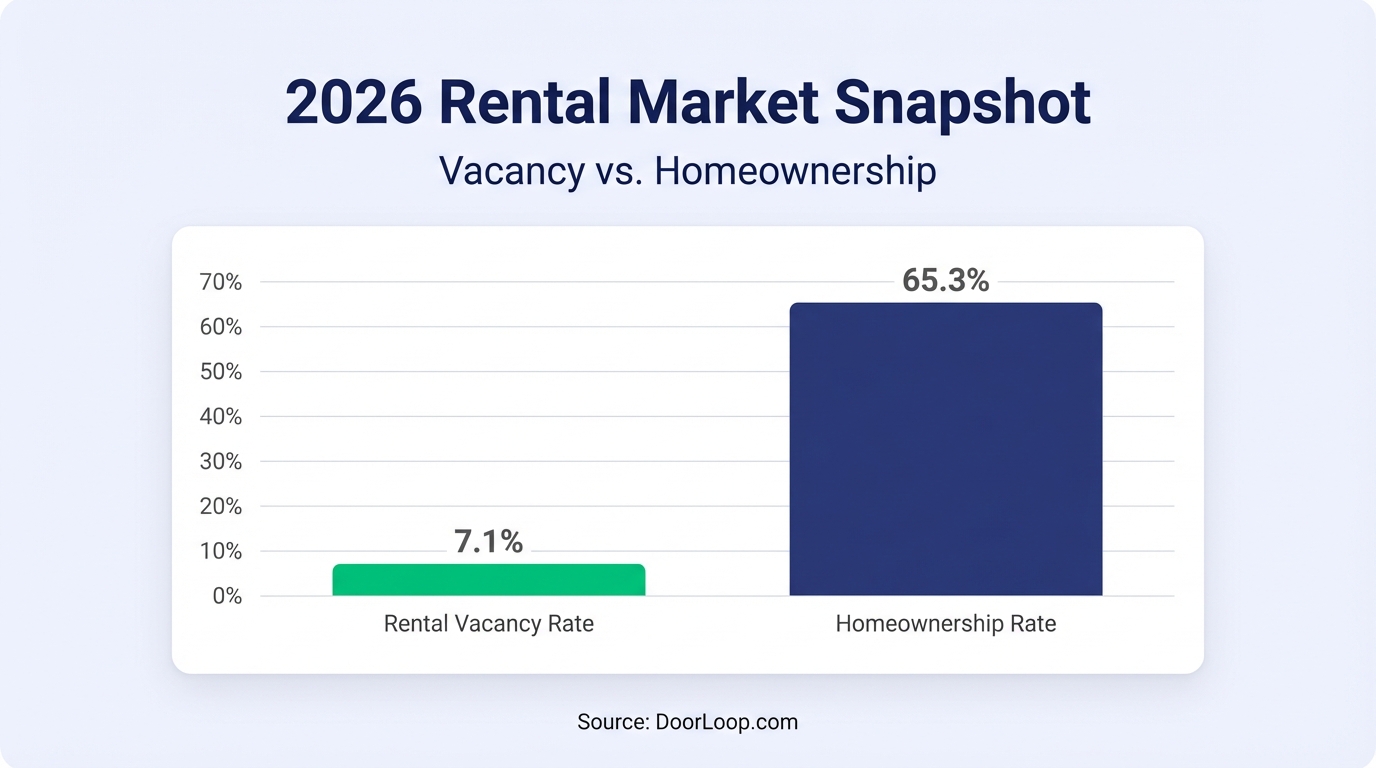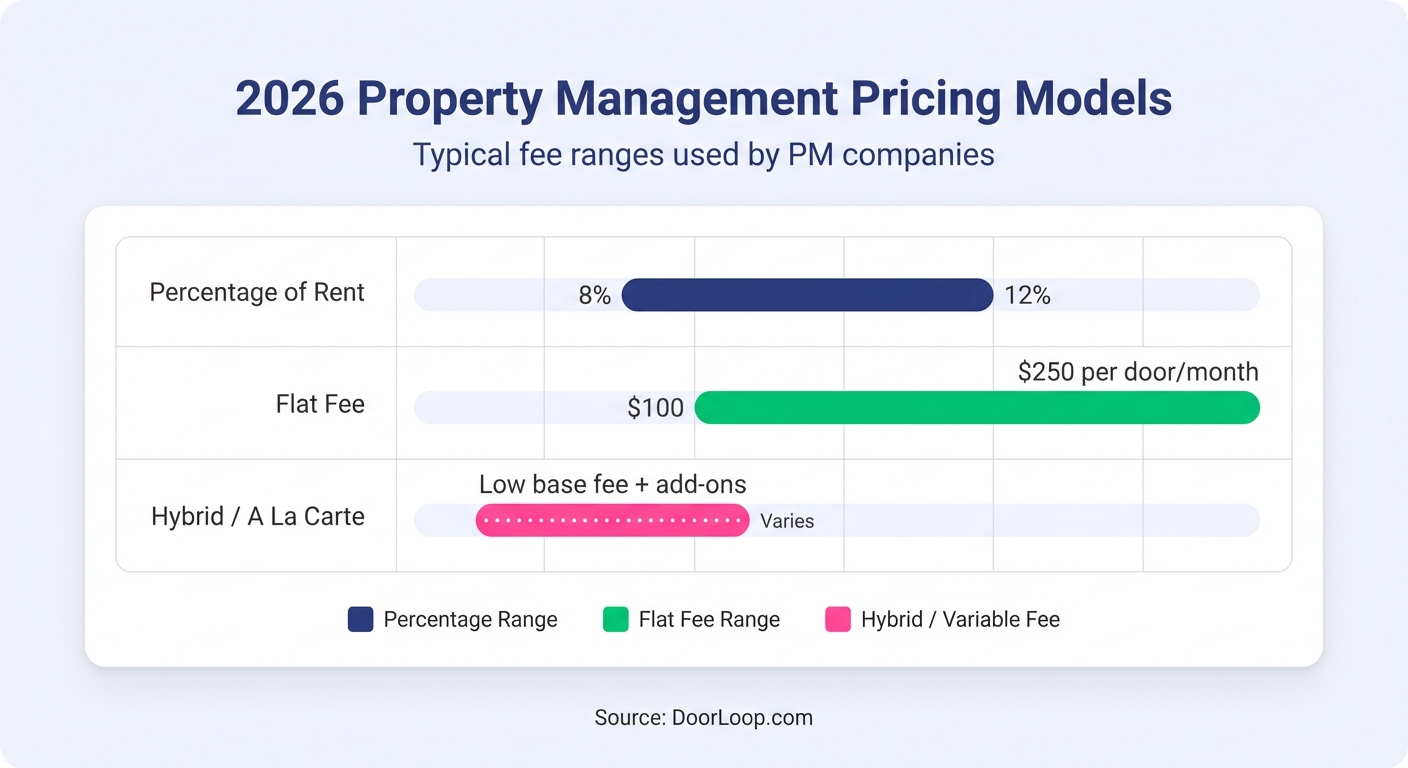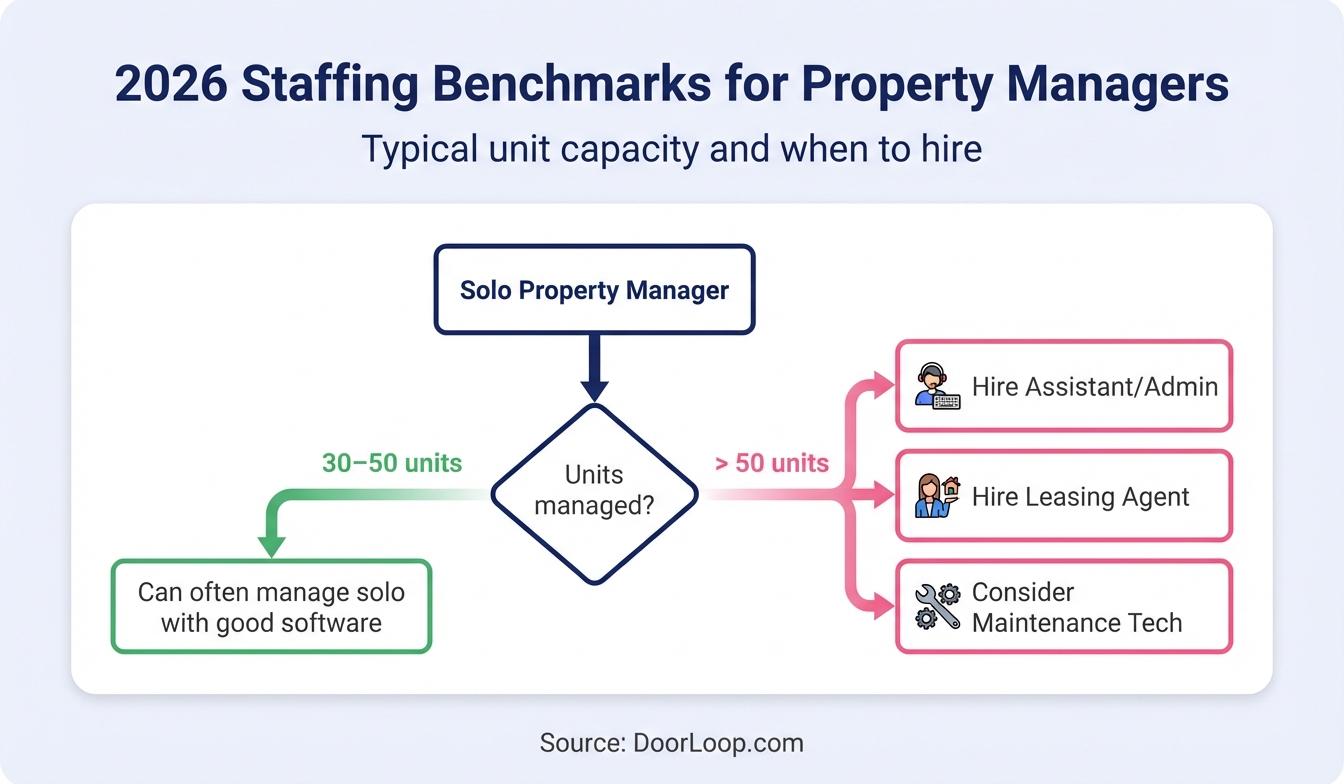Starting a property management company takes hard work, but the timing has rarely been better. According to Q3 2025 data from the U.S. Census Bureau, the rental vacancy rate sits at 7.1%, while high mortgage rates (hovering around 6.06% in early 2026) are keeping more Americans in the rental market longer.

With median asking rents for vacant units reaching $1,534, property owners are under immense pressure to maximize their returns and minimize vacancies. They need experts to navigate this complex market.
When you decide to start your own property management company, you’re committing to managing assets, people, and legal compliance. Although there are endless success-driven individuals willing to put in the work, you may not know where to begin.
If this sounds like you, you’ve come to the right place. This beginner’s guide outlines the process, legal requirements, and tools to help you launch fast.
Key Takeaways
- Verify Licensing First: Most states require a Real Estate Broker’s License to manage third-party properties.
- Define Your Niche: Decide between residential (single-family/multifamily) or commercial early to target the right marketing channels.
- Structure Matters: Forming an LLC and obtaining an EIN are critical for liability protection and banking.
- Automate Early: Using property management software from day one reduces overhead and scales with you.
- Focus on Recurring Revenue: Structure fees around management percentages (typically 8–12%) plus leasing and renewal fees.
What Does a Property Management Company Do?
One of the first things you should know is what does a property management company do? In simple terms, you act as the operational bridge between the property owner and the tenant.
While services vary, most successful property management companies handle these core responsibilities:
- Marketing and advertising: Filling vacancies quickly to maintain cash flow using advertising software.
- Tenant screening: Running credit, criminal, and eviction checks using tenant management software.
- Rent collection: Enforcing payment schedules and late fees.
- Accounting: Managing trust accounts, financial reporting, and 1099s.
- Maintenance: Handling 24/7 requests and vendor coordination with work order software.
- Legal compliance: Navigating Fair Housing laws and eviction proceedings.
Overall, your company shoulders the daily burden so investors can enjoy passive income.
How to Start a Property Management Company Step by Step
Starting a property management company requires a clear plan and execution. These are the basic steps to launch a compliant, scalable business:
- Check Licensing Requirements: Most states require a broker's license.
- Legal Structure: Register as an LLC or Corp and get your EIN.
- Business Plan: Define your target market and financial projections.
- Services & Fees: Decide how you will make money.
- Banking & Accounting: Set up operating and trust accounts.
- Software: Invest in tools to automate operations.
- Hire a Team: Build a network of vendors and staff.
- Marketing Strategy: Acquire your first property owners.
1. Property Management Licenses and Legal Requirements by State
In most states, it is required that individuals managing third-party properties hold a real estate broker’s license or a specific property management license. You generally cannot manage properties for others using just a standard real estate agent license; you must work under a broker.
State Licenses
Requirements vary significantly. For example, Florida and California have strict broker requirements, while states like Idaho or Maine have fewer barriers. You typically need to:
- Complete pre-licensing education (often 60+ hours).
- Pass the state real estate broker exam.
- Gain experience (often 1–3 years) as a salesperson (agent).
Local Permits
Your local government may require a general business license or zoning permit to operate an office. Always check with your local Department of Professional Regulation.
2. Register Your Property Management Business
Once you know you can legally operate, you must formalize the business entity. This separates your personal assets from your business liabilities—a crucial step in a litigious industry like real estate.
Choose a Legal Structure
Consult with a legal professional, but here are the common structures:
- Sole Proprietorship: Easiest to start, but offers zero liability protection. Generally not recommended for property management due to risk.
- Limited Liability Company (LLC): The most common choice. It protects personal assets and offers pass-through taxation.
- Corporation (C-Corp or S-Corp): More complex setup but may offer tax advantages for high-revenue companies.
Obtain a Federal Tax Identification Number (EIN)
You will need an Employer Identification Number (EIN) from the IRS to open business bank accounts and hire employees. This is free and takes minutes on the IRS website.
3. Write a Property Management Business Plan
Don't skip this step. A business plan isn't just a document for banks; it's your roadmap. It forces you to answer:
- Who is your customer? (e.g., Accidental landlords with 1 unit vs. Investors with 50+ units).
- What is your niche? (e.g., Single-family homes, student housing, HOA management, or commercial).
- What is your break-even point? How many units do you need to manage to cover your software, insurance, and salary?
You should also analyze the local market. Call competitors to check their pricing or browse their websites to see what services they include (or exclude).
4. Choose Your Property Management Services and Revenue Streams

How will you generate revenue? Successful companies don't just rely on rent collection; they build a fee structure that covers the extra work they perform.
5. Set Up Property Management Accounting and Banking
Commingling funds (mixing your money with client money) is the fastest way to lose your license, and solid property management accounting software helps enforce clean separations.
Trust Accounts
Most states require you to hold security deposits and owner funds in specific trust accounts or "Escrow Accounts." These are separate from your business operating account. You must be able to reconcile every dollar in these accounts to a specific property and tenant with consistent property management accounting practices, ideally with bank sync to reduce manual errors.
If you struggle with the complexity of trust accounting, consider using real estate accounting software that is built to handle property-specific ledgers automatically.
6. Choose Property Management Software That Saves Time
Managing properties involves numerous tasks that must be completed promptly. Handling all these responsibilities manually via spreadsheets is impossible once you grow past a few units.
Modern property management software shoulders the heavy lifting. Look for these essential features:
- Automation: Automatically send rent reminders and late fees.
- Tenant Portal: Allow tenants to pay online (ACH/Credit Card) and submit work orders.
- Owner Dashboard: Give owners read-only access to their financial reports through a property owner portal.
- Accounting Integration: Sync with QuickBooks or use built-in trust accounting tools.
7. Build Your Property Management Team and Vendor Network

You don't need full-time employees immediately, but you do need a network. You are only as good as your ability to fix a leaking pipe at 2:00 AM.
The "Virtual" Team:
- Real Estate Attorney: To review your management agreement and lease templates.
- CPA: To handle your business taxes and ensure trust account compliance.
- Vendors: Plumbers, electricians, HVAC techs, and cleaners. Vetting these vendors before you get a client is a major selling point.
8. Get Your First Property Management Clients
One of the last (and most important) steps for launching your property management company is effective advertising and a simple property management CRM to track leads.
Referral Networks
Connect with local real estate agents who don't do property management. When their clients buy investment properties, they can refer the management to you. In exchange, you agree to refer the client back to that agent if they decide to sell the house later.
Digital Presence
Property owners search for "property managers near me." You need:
- A professional website (DoorLoop can create a custom website for you).
- A Google Business Profile with reviews.
- Content marketing (blogs about the local rental market).
9. Property Management Contracts, Insurance, and Compliance Basics
Before you sign a client, you need a solid Property Management Agreement (PMA). This contract defines your authority to spend money on repairs, your liability limits, and your fees. Never operate on a handshake.
Additionally, ensure you have the right insurance:
- General Liability Insurance: For physical injury or property damage.
- Errors and Omissions (E&O) Insurance: Protects you if a client claims your professional advice caused them financial loss.
Finally, familiarize yourself with Fair Housing Laws. Discrimination based on race, color, religion, sex, national origin, familial status, or disability is illegal. One mistake here can bankrupt a new company.
Next Steps
Starting a property management company is challenging, but with the rental market remaining strong through 2026, the opportunity is significant. By following the steps outlined here—securing your license, setting up your tech stack, and building a vendor network—you'll be well on your way to running a thriving business.
Don't try to manage it all with spreadsheets and sticky notes. The right tools can make you look like a pro from day one.
To see how DoorLoop can help you start faster and grow smarter, schedule a demo today.
Sources
- U.S. Census Bureau – Quarterly Residential Vacancies and Homeownership, Third Quarter 2025
- Freddie Mac – Primary Mortgage Market Survey (PMMS)
- U.S. Census Bureau – ACS 1-Year Estimates (Housing Costs)
































.svg)
.svg)

